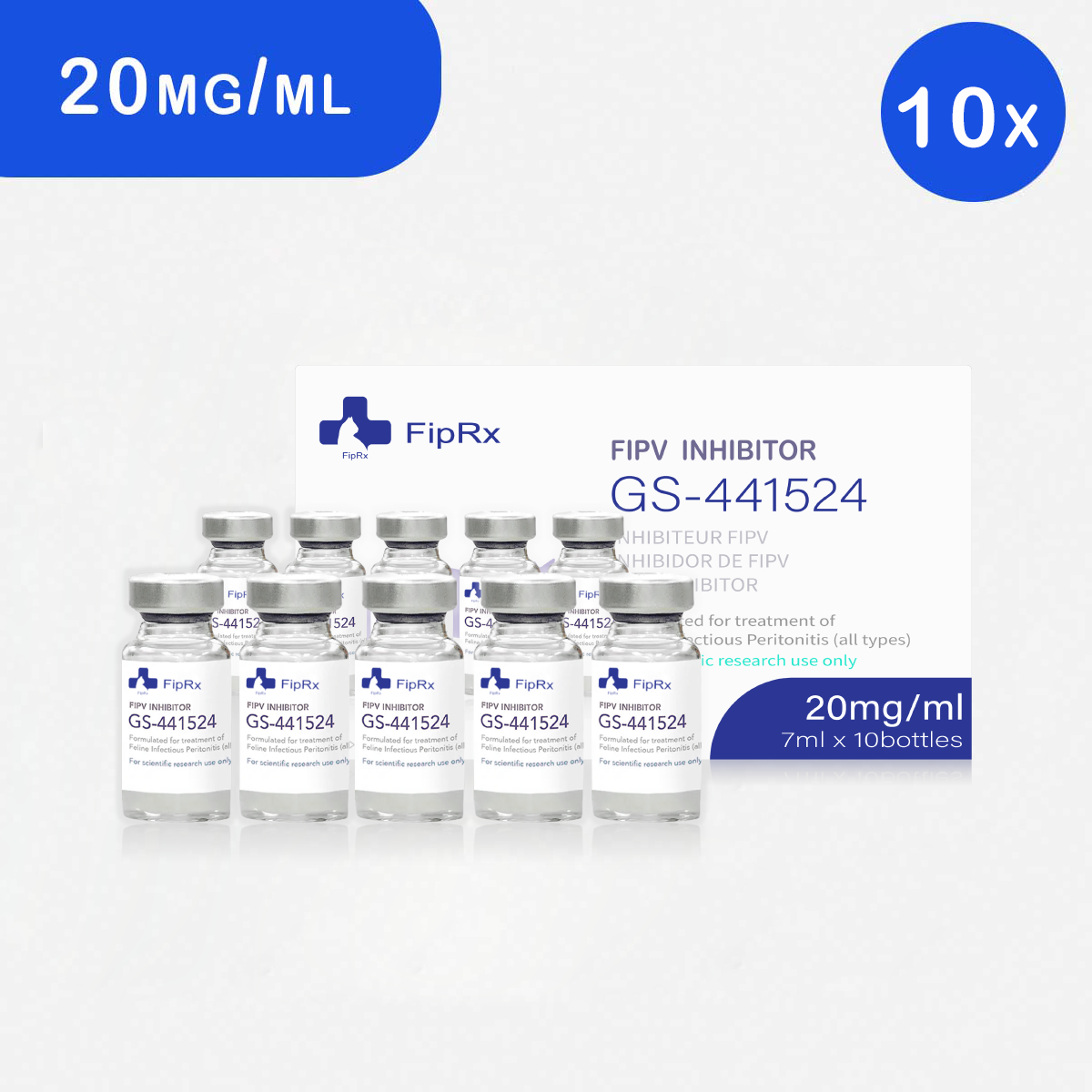A proven cat FIP treatment is already available. However, due to a lack of financial motivation, there is currently no officially approved medication for FIP in cats. Supportive therapy, such as anti-inflammatory drugs and fluid drainage from the chest and abdomen, can ease discomfort but won’t increase survival rates. In the past, euthanasia was often the best option given the disease’s rapid progression and high mortality rate. Today, however, effective treatment options with high success rates are available.
Several investigational medications are currently being explored, including GS-441524, GC376, CL-Pro, and Remdesivir. These medications are not yet legally accessible for clinical use in cats.
Antivirals (Protease Inhibitors, Polymerase Inhibitors, Nucleoside Analogues)
The only treatments that offer hope to cats with FIP are GS-441524, a nucleoside analogue, and GC376, a protease inhibitor.
GS-441524 remains the best option for treating FIP due to its lower relapse rates compared to GC376. It is also faster acting compared to Remdesivir. In fact, Remdesivir is a precursor to GS-441524, requiring an additional conversion step to become effective.
Feline Interferon
Interferon is a protein that the body naturally produces in response to viral infections. There are two types of interferons available to veterinarians: feline interferon omega (Virbagen Omega®, made by Virbac in France) and human interferon alpha, which is marketed under several brand names. It is preferable to use feline interferon because interferons are species-specific and work best in the species of origin.
Interferon-omega is an injection marketed for cats with FIP. An early small study showed promising results, leading to its brief inclusion in standard treatment protocols. It was one of the earliest treatments available for FIP, but the success rate was low. A larger double-blinded placebo-controlled study later found no benefit to interferon, which should have ended its use. However, the drug is still available, and some people continue to reference the earlier positive study without acknowledging the later findings.
Corticosteroids (Only for Palliative Use)
During the early stages of illness, supportive (symptomatic) medication may be required to keep cats alive long enough for antivirals to take effect. Anti-inflammatories, such as corticosteroids and NSAIDs, are frequently included in these medications. It is preferable to avoid using these drugs excessively unless on a short-term basis and only if there is a compelling rationale, especially in extremely unwell cats during the initial few days.
GS-441524 Safety as FIP Treatment
GS-441524 has been shown to be a safe and effective treatment option. The drug was originally developed as an antiviral treatment for humans but has since been repurposed for feline use.
Multiple studies have demonstrated that the drug does not cause significant adverse effects or toxicity when administered as directed. Some cats may experience mild side effects such as nausea or lethargy during treatment. These symptoms typically resolve quickly and do not require intervention from a veterinarian.
4o
Holiday Sale
Up to 77% off
Get your favorite vinyl at record-breaking prices.


